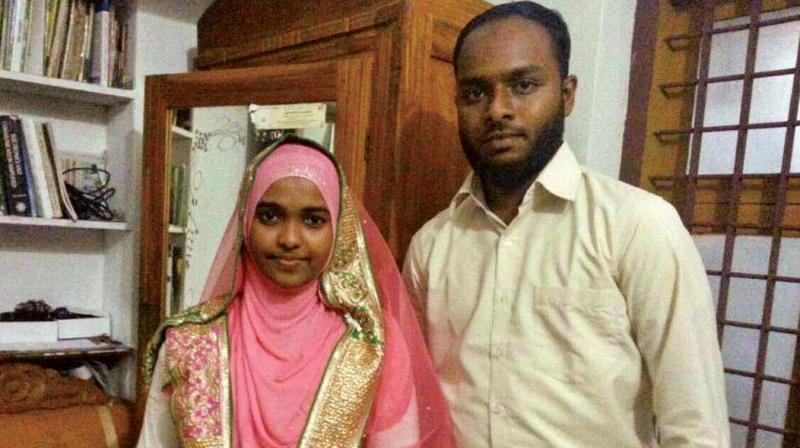Produce Hadia in court, says Supreme Court in love jihad case

New Delhi: Being an adult, Hadiya’s version of how and why she married a Muslim man in Kerala last year is needed to assess her mental state, the Supreme Court said on Monday as it examined the “love jihad” case that has become the subject of an investigation by counter-terror agency NIA.
The apex court directed the father of 24-year-old Hadiya alias Akhila to present her on November 27 for an interaction to ascertain whether she converted to Islam and married Shafin Jahan, 27, out of free will and consent.
The Kerala high court had in May annulled the marriage and order the custody of the woman to her father. Mr Jahan later moved the top court calling the annulment of their marriage as an insult to the independence of women.
On Monday, a three-judge Supreme Court bench, headed by Chief Justice Dipak Misra, refused to accept the submission of additional solicitor-general Maninder Singh, appearing for the National Investigation Agency (NIA), to look at its confidential probe report before summoning Hadiya.
Mr Singh said when a person is indoctrinated to hate her own religion and parents, there is little to determine whether free will was exercised. The bench, which also included Justices A.M. Khanwilkar and D.Y. Chandrachud, said, “We will interact with the girl in open court to make a preliminary assessment of her mental state. If we suspect any indoctrination, this court has the powers to direct her detailed examination by appropriate authorities.”
On the ASG’s submission that Hadiya’s husband was linked to the Popular Front of India, an outfit found by the NIA to be involved in nine cases of indoctrination in Kerala, the court said, “There is nothing in law that stops someone to fall in love and marry a criminal. We will not send the girl with her husband after speaking with her. We want to know whether she acted on her own volition and desire.”
Senior counsel Shyam Divan, appearing for Hadiya’s father, said she was a pawn in a “huge organisational apparatus” to radicalise young persons in Kerala. The CJI told the counsel, “The issue pertains to marital relationship. The issue is whether the Kerala high court could have annulled the marriage and ordered the custody of the girl to the father. We will check only the legal principles.”

